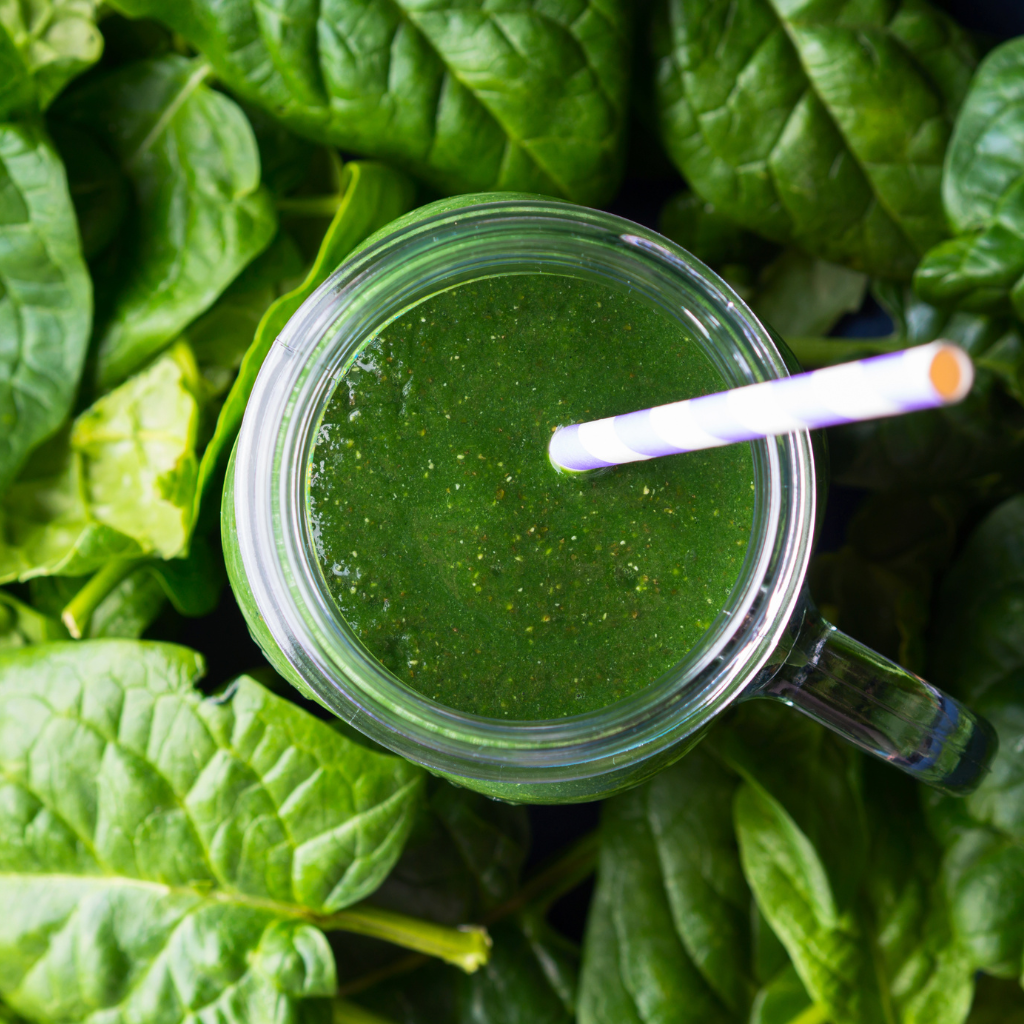10 Best Green Foods That Are Good For You
Some of the best green foods that are good for you can be one of the easiest and most effective ways to boost your nutrient intake and support your overall health. Greens are packed with a variety of vitamins, minerals, fiber, and antioxidants, and consuming them on a regular basis has been linked to numerous health benefits according to the USDA
But with so many different types of greens available, it can be challenging to determine which ones to prioritize. To help you out, we’ve compiled a list of the 10 best greens to eat, along with two green beneficial drinks that you can easily incorporate into your diet.
Spinach
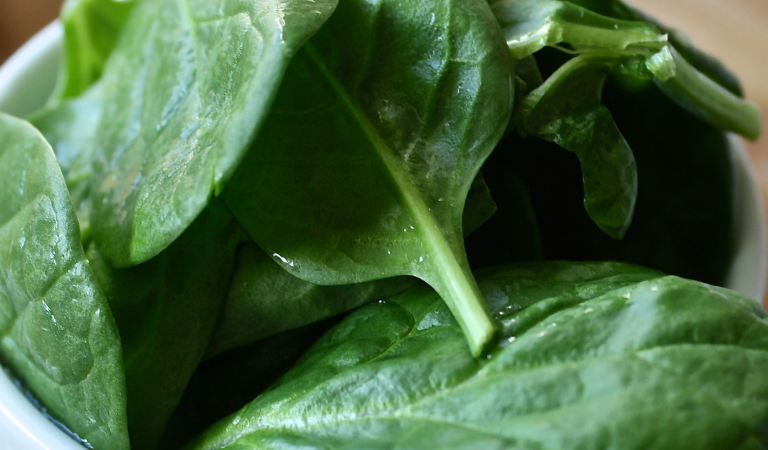
Spinach, scientifically known as Spinacia oleracea, is a versatile and nutrient-packed leafy green that has long been recognized for its remarkable benefits to human health. Belonging to the family Amaranthaceae, it is native to central and western Asia but has gained widespread popularity across the globe for its ease of cultivation and incorporation into countless dishes. Spinach offers a myriad of essential nutrients and stands out for its impressive potential to safeguard and promote overall wellness.
One of the standout attributes of spinach is its remarkable vitamin profile. It is an incredible source of vitamin A, which is essential for maintaining healthy skin, vision, and immune function. The carotenoids, lutein and zeaxanthin, found in spinach also contribute to eye health by protecting from age-related macular degeneration and cataracts. Vitamin C, another abundant nutrient in spinach, plays a crucial role in collagen synthesis, wound healing and fortifying our immune system. Furthermore, spinach is rich in vitamin K, which aids in blood clotting and supports bone health.
Spinach also boasts an array of essential minerals such as folate, iron, and calcium. Folate is crucial for pregnant women as it helps in proper fetal development and prevention of neural tube defects. Iron is vital for red blood cell production and delivering oxygen throughout the body, while calcium contributes to strong teeth and bones. Additionally, spinach is a good source of magnesium and potassium, which aid in muscle and nerve function, and help to maintain normal blood pressure.
Another noteworthy aspect of spinach is its high content of antioxidants, such as flavonoids and phenolic compounds. These powerful substances neutralize free radicals in the body, protecting cells from damage and reducing the risk of various diseases, including heart disease and cancer. The antioxidant properties of spinach can also help combat inflammation and slow down the aging process.
Spinach is an incredibly versatile and nutrient-rich leafy green that should be a staple in a well-rounded diet. Its impressive profile of vitamins, minerals, and antioxidants contributes to a myriad of health benefits, from maintaining healthy eyesight to fighting inflammation and reducing disease risk. Whether enjoyed raw in salads, blended into smoothies, or cooked into various culinary dishes, spinach is a simple and delicious way to improve your health and elevate your nutritional intake.
Kale
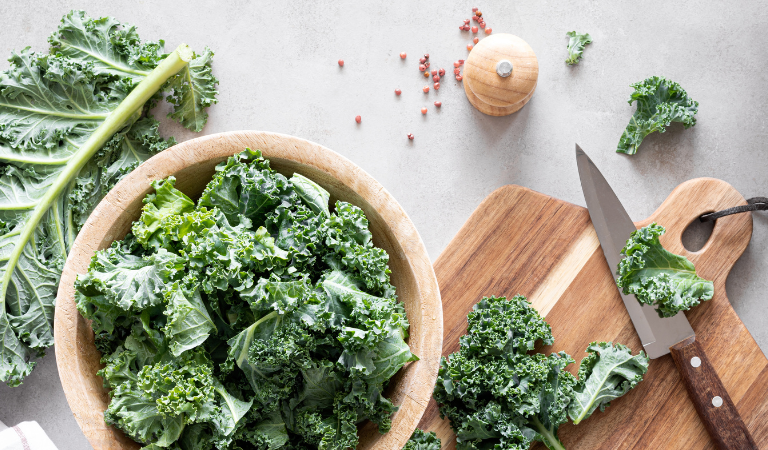
In recent years, kale has experienced a meteoric rise in popularity, transforming from a humble leafy green into a veritable superfood sensation. This increase in popularity is well deserved, as kale is a nutritional powerhouse loaded with an impressive array of vitamins, minerals, and health-promoting compounds.
To start with, kale is an exceptional source of vitamins. It is particularly rich in vitamins A, C, and K. Vitamin A plays a crucial role in maintaining healthy vision, immune system function, and cellular growth. Meanwhile, vitamin C is essential for collagen production, iron absorption, and immune support. Vitamin K is vital for blood clotting and maintaining healthy bones. In fact, a single cup of raw kale provides more than 100% of the recommended daily intake of these vitamins, ensuring that your body gets the nutrients it needs to function optimally.
Kale also boasts an abundance of minerals such as calcium and iron. Adequate calcium intake is necessary for the maintenance of strong bones and teeth and is also involved in nerve function, muscle contraction, and blood clotting. On the other hand, iron plays a key role in red blood cell formation and oxygen transportation throughout the body. Incorporating kale into your meals can help ensure that your body gets sufficient amounts of these vital minerals.
Additionally, kale is an excellent source of dietary fiber, with a one-cup serving providing almost 10% of the daily recommended intake. Fiber is crucial for maintaining good bowel health, preventing constipation, lowering cholesterol levels, and regulating blood sugar. As a result, incorporating more kale into your diet can potentially result in improved digestion and a reduced risk of developing chronic diseases such as heart disease and diabetes.
What truly sets kale apart from other leafy greens, however, is its high concentration of antioxidants and anti-inflammatory compounds. One of these powerful compounds is quercetin, a flavonoid known for its potential to reduce inflammation, lower blood pressure, and protect against various diseases. Another noteworthy compound found in kale is sulforaphane, a sulfur-containing compound that has been shown to exhibit anti-cancer properties. These antioxidants help neutralize harmful free radicals, which are unstable molecules that can damage cells, cause inflammation, and contribute to chronic illnesses.
Due to the numerous health benefits associated with its consumption, kale has earned a well-deserved reputation as a nutrient-dense and wholesome food. Regularly consuming kale as part of a balanced diet can offer numerous health advantages, from bolstering the immune system and supporting bone health to reducing inflammation and protecting against chronic diseases. Embrace the trend and enjoy the myriad benefits of this incredibly versatile and nutritious leafy green.
Collard Greens

Collard greens, scientifically known as Brassica oleracea, are a variety of leafy green vegetables that belong to the cruciferous family, which also includes cabbage, broccoli, and kale. These nutritional powerhouses are a staple in Southern cooking and are particularly popular in African-American soul food cuisine. Not only are these versatile vegetables an essential ingredient in many dishes, but they also offer a plethora of health benefits.
Collard greens are exceptionally rich in vitamins A, C, and K. In fact, a single cup of cooked collard greens contains approximately 300% of the Recommended Daily Allowance (RDA) for vitamin A, which is essential for maintaining healthy vision, promoting immune function, and supporting cell growth. Moreover, the same serving provides approximately 58% and 1000% of the RDA for vitamins C and K, respectively. Vitamin C plays a vital role in immune system support, collagen synthesis, and iron absorption, while vitamin K is crucial for promoting proper blood clotting and bone health.
Additionally, collard greens are a good source of folate, providing around 32% of the RDA per cup. Folate, or vitamin B9, is essential for proper nervous system function and the synthesis of DNA and RNA, which is particularly important during periods of rapid growth, such as pregnancy and early childhood. Furthermore, these leafy greens are packed with calcium—about 270 milligrams in one cup of cooked greens—making them a wonderful plant-based option to support strong bones and teeth.
One of the key health benefits of collard greens lies in their high levels of antioxidants, such as carotenoids and flavonoids. These compounds can help neutralize harmful free radicals in the body, thus potentially reducing oxidative stress and lowering the risk of chronic diseases such as cancer and cardiovascular disease. Other antioxidants, like quercetin and kaempferol, offer strong anti-inflammatory properties, which may be beneficial in alleviating symptoms of inflammatory conditions like rheumatoid arthritis and chronic pain.
Collard greens are not only packed with nutrients but are also low in calories—only 49 calories per cooked cup—making them a nutritious addition to any meal. These leafy greens are versatile enough to be used in various types of dishes, whether sautéed with garlic and olive oil, slow-cooked with ham hocks and onions in a traditional Southern style, or mixed into a savory soup. They can even be used as a healthy alternative to tortillas for wrap sandwiches.
Collard greens are a tasty and nutrient-dense vegetable that can be easily incorporated into a wide range of meals. Offering an impressive array of vitamins, minerals, and antioxidants, these leafy greens provide several potential health benefits and can play an important role in maintaining overall well-being, making them a valuable addition to any diet.
Swiss Chard
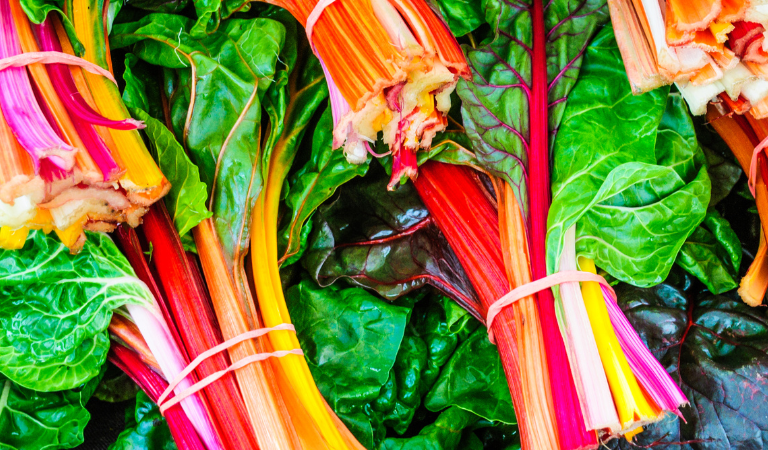
Swiss chard, scientifically known as Beta vulgaris subsp. cicla, is a highly nutritious leafy green vegetable hailing from the same family as beetroot and spinach. With its vibrant, colorful stems and deep green leaves, Swiss chard is not only a delightful addition to a variety of culinary dishes, but it also boasts numerous health benefits.
Regarded as one of the most nutrient-dense foods on the planet, Swiss chard is packed with an impressive range of essential vitamins and minerals. One cup of cooked Swiss chard provides 716% of the daily value of vitamin K, which plays a crucial role in blood clotting and maintaining bone health. The rich supply of vitamin A found in Swiss chard (122% of the daily value per cup) supports healthy vision and immune function. Additionally, just one cup of this leafy green powerhouse provides a generous 53% of the daily value of vitamin C, an essential antioxidant that aids in collagen production, wound healing, and overall immune support.
Minerals found in Swiss chard are also highly beneficial for maintaining overall health. One cup of Swiss chard contains 38% of the daily value of magnesium, which is vital for proper muscle function and regulating blood pressure. Potassium, comprising 27% of the daily value per cup, supports heart and kidney function while also aiding in the maintenance of optimal blood pressure levels. Iron, contributing 22% of the daily value, aids in the formation of red blood cells, providing oxygen transport, and is necessary for efficient energy production.
Swiss chard also contains phytonutrients called betalains, which impart the vibrant colors of chard’s stems and veins. Betalains are known to have potent antioxidant and anti-inflammatory properties. Antioxidants present in Swiss chard help neutralize free radicals in the body, thereby reducing the risk of chronic diseases and promoting overall health. Moreover, anti-inflammatory compounds protect our body from inflammation-induced conditions, including arthritis and cardiovascular diseases.
In addition to these impressive nutritional qualities, the fiber content of Swiss chard contributes to healthy digestion and weight management by promoting satiety and regulating blood sugar levels. By incorporating Swiss chard into your diet, you can relish in the delicious flavors of this versatile vegetable, while reaping the remarkable health benefits. From sautés to salads, soups to smoothies, Swiss chard is a nutritious and delightful addition to your table, promoting a vibrant and healthy lifestyle.
Arugula

Arugula, scientifically known as Eruca sativa, is a leafy green vegetable with a distinctive peppery and somewhat sharp, bitter taste. Originating from the Mediterranean region, it belongs to the Brassicaceae family, which also includes other well-known vegetables such as kale, broccoli, and cabbage. It has been cultivated and consumed for centuries, not only for its unique taste but also for its numerous health benefits. Today, arugula is popular worldwide and is predominantly used in salads, but can also be found in various dishes, such as pasta, pizza toppings, or even as a garnish for meat and fish dishes.
One of the primary benefits of consuming arugula is its impressive nutrient profile. This dark green leafy vegetable is packed with essential vitamins and minerals, such as vitamins A, C, and K, as well as folate and calcium. Vitamin A plays a crucial role in maintaining healthy skin and vision, while vitamin C supports a robust immune system and helps the body absorb iron. Vitamin K is necessary for proper blood clotting and bone health, and folate is especially important during pregnancy as it promotes the healthy development of the fetus. Calcium is a vital mineral that contributes to strong bones and teeth, as well as proper muscle function.
In addition to the essential vitamins and minerals, arugula is an abundant source of potent antioxidants, which are crucial in protecting the body against oxidative stress caused by free radicals. These antioxidants include carotenoids like beta-carotene, lutein, and zeaxanthin, and flavonoids such as quercetin and kaempferol. By neutralizing free radicals, antioxidants reduce inflammation and thus may help lower the risk of developing chronic diseases, including diabetes, heart disease, and certain types of cancer. Moreover, an increased consumption of antioxidant-rich foods such as arugula has been linked to a reduced risk of age-related macular degeneration and cataracts, both of which can cause vision impairment.
Arugula is also considered a low-calorie, nutrient-dense food, meaning it provides a significant amount of nutrients while being relatively low in calories. This makes it an excellent addition to a balanced, healthy diet, particularly for those looking to manage or lose weight. Additionally, arugula is an excellent source of dietary fiber, which plays a crucial role in supporting healthy digestion, regulating blood sugar, and maintaining healthy cholesterol levels.
Furthermore, arugula contains glucosinolates, sulfur-containing compounds that have been shown to have cancer-fighting properties. Glucosinolates are converted into isothiocyanates during digestion, which have been known to neutralize cancer-causing agents and inhibit the growth of cancer cells.
Incorporating arugula into your diet can not only add a unique, peppery flavor to your meals, but also provide a wealth of vitamins, minerals, and antioxidants, in addition to potential cancer-fighting properties. By incorporating this versatile green leafy vegetable into your meals, you can support your overall health and well-being while enjoying a delicious, fresh addition to your dishes.
Broccoli
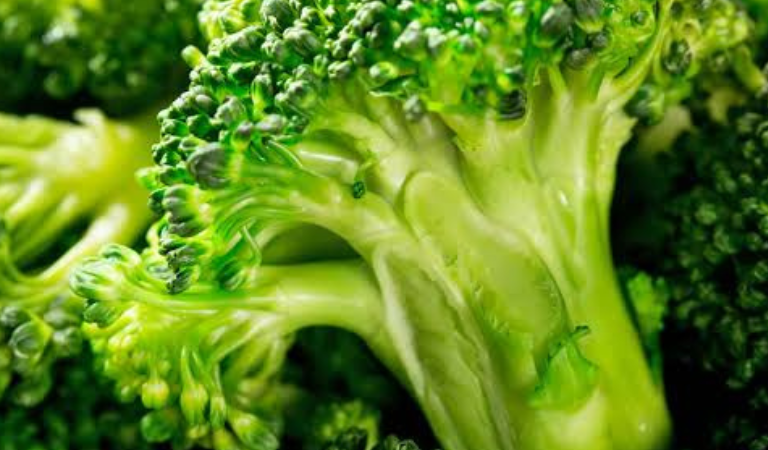
One of the standout features of broccoli is its exceptional vitamin C content. A single cup of chopped broccoli provides approximately 135% of the recommended daily intake of this crucial vitamin. Vitamin C is instrumental in promoting a robust immune system, warding off infections, and neutralizing harmful free radicals due to its potent antioxidant properties. Furthermore, it aids in the production of collagen, which promotes healthy skin, bones, and connective tissues.
In addition to vitamin C, broccoli is a rich source of vitamin K, providing about 245% of the recommended daily intake in a single cup. Vitamin K is essential for blood clotting and supports bone health by promoting the absorption of calcium and reducing the risk of fractures. It also plays a role in maintaining brain function, making it a significant nutrient for all ages.
Folate, a B-vitamin, is another essential nutrient found in broccoli. It aids in the formation of red and white blood cells, the proper development of the neural tube in fetuses, and the prevention of certain birth defects. Folate is also known to help maintain heart health, as it aids in the reduction of homocysteine, an amino acid associated with an increased risk of cardiovascular disease.
Dietary fiber is another significant constituent of broccoli, contributing to 9% of the recommended daily intake in just one cup. Fiber is essential in promoting healthy digestion, regulating blood sugar levels, lowering cholesterol, and maintaining a healthy body weight. Consuming ample amounts of fiber can also be instrumental in reducing the risk of various chronic diseases, such as heart disease, diabetes, and certain types of cancer.
Beyond its rich vitamin and mineral content, broccoli is brimming with antioxidants and anti-inflammatory compounds, which assist in safeguarding the body against cellular damage caused by harmful free radicals. Chlorophyll, carotenoids, and the sulfur-rich compound sulforaphane are among the powerful antioxidants found in this cruciferous vegetable. Moreover, broccoli contains a group of phytonutrients called isothiocyanates known for their anti-cancer properties, making this vegetable a dynamic component in disease prevention and health promotion.
Broccoli is a nutrient-laden cruciferous vegetable that boasts multiple health benefits, cementing its place as a powerful dietary ally. Its rich array of vitamins, minerals, and antioxidants, including vitamins C and K, folate, fiber, and powerful phytonutrients, contribute to disease prevention, immune support, and overall health promotion. Incorporating broccoli into one’s diet is a delicious and nutritious way to bolster overall health and wellbeing.
Cabbage
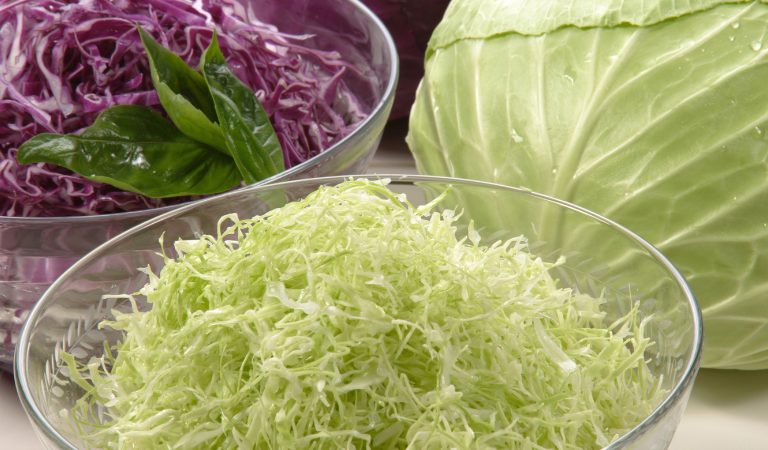
Cabbage is an excellent source of vitamin C, a potent antioxidant that supports the immune system and protects the body from infection and disease. In fact, a single cup of raw cabbage can provide up to 60% of the daily recommended value of vitamin C. Vitamin K, another essential nutrient found in high quantities in cabbage, plays a crucial role in blood clotting and promoting bone health. Additionally, cabbage is a good source of folate, a B-vitamin that is essential for proper cellular function, and fiber, which aids digestion and supports gut health.
Antioxidants are another area where cabbage stands out, as it contains high levels of polyphenols, flavonoids, and glucosinolates. These compounds neutralize free radicals, which are unstable molecules that can cause damage to cells and lead to chronic diseases like cancer, heart disease, and inflammation. Furthermore, cabbage contains a specific group of antioxidants known as anthocyanins, most prominently in red and purple varieties. These pigmented compounds contribute to the vibrant color of the vegetable and, more importantly, are associated with enhanced antioxidant capacity and potential anti-cancer benefits.
In addition, cabbage has a wealth of anti-inflammatory compounds such as sulforaphane, which has been linked to the prevention of chronic inflammation, a major contributor to the development of chronic diseases. Research has also indicated that cabbage contains specific compounds, like isothiocyanates and indole-3-carbinol, that may help protect against certain types of cancers, including colorectal, breast, and prostate cancer.
Apart from its health benefits, cabbage is also a highly sustainable and eco-friendly choice, as it can be grown efficiently without requiring excessive amounts of water or attention. This makes it an environmentally friendly option for those seeking to make sustainable dietary choices.
Cabbage is a highly nutritious and versatile cruciferous vegetable that offers numerous health benefits, owing to its rich vitamin, antioxidant, and anti-inflammatory content. Incorporating cabbage into a balanced and varied diet can help protect against chronic diseases, support overall health, and contribute to a more sustainable food system.
Bok Choy
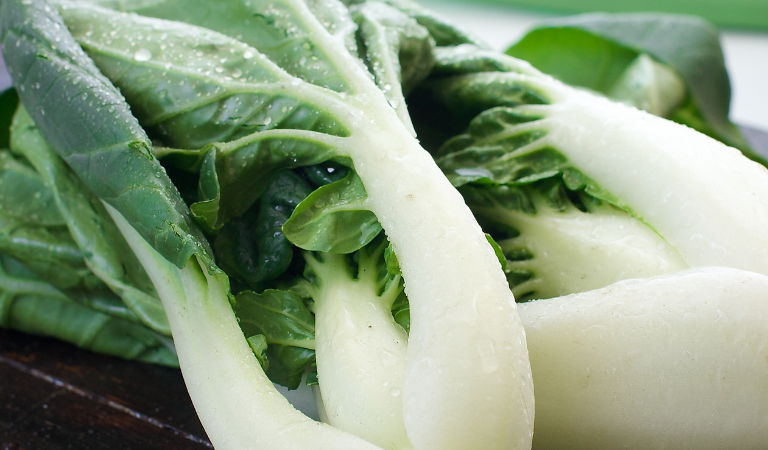
Aside from its versatility in the culinary world, bok choy is highly prized for its numerous health benefits. This nutritious vegetable is packed with essential vitamins and minerals, including vitamin A which is crucial for healthy vision and proper functioning of the immune system. It is also an excellent source of vitamin C, which not only boosts the immune system but also assists in collagen production and promotes healthy skin. Moreover, bok choy contains significant levels of calcium, contributing to stronger bones and teeth, as well as fiber that aids in digestion and maintaining a healthy digestive tract.
Bok choy also stands out for the wealth of antioxidants and anti-inflammatory compounds it contains. These naturally occurring substances play an essential role in neutralizing harmful free radicals within the body, thus reducing oxidative stress and preventing premature aging and various diseases. Among these antioxidant-rich elements are glucosinolates, which are sulfur-containing compounds that have been linked to a reduced risk of certain types of cancer. In addition, bok choy is an abundant source of beta-carotene, lutein, and zeaxanthin, all of which promote healthy eyesight and may help to prevent age-related macular degeneration.
Furthermore, this Chinese cabbage has long been associated with traditional Chinese medicine due to its anti-inflammatory effects. The presence of compounds like indole-3-carbinol and sulforaphane has been shown to have numerous therapeutic properties, such as promoting cardiovascular health, supporting the detoxification of harmful pollutants in the body, and even exhibiting potential as an aid to prevent and treat neurodegenerative diseases like Alzheimer’s and Parkinson’s.
Incorporating bok choy into your diet is not only an opportunity to explore diverse and delicious culinary creations but also a means to support your overall health and wellbeing. With its rich nutritional profile and powerful health-promoting compounds, the humble bok choy is undoubtedly a welcome mix of flavor and functionality, making it a versatile and valuable addition to any meal.
Watercress

Vitamin A is fundamental to maintaining optimal skin health, supporting immune function, and promoting good vision. In the case of watercress, an 80g (2.8oz) serving provides 58mcg of vitamin A, which accounts for approximately 8% of the recommended daily allowance (RDA) for men and 10% for women. Vitamin C is also present in substantial amounts; the same portion contains around 43mg, which is 48% and 57% of the daily requirements for men and women, respectively. This essential micronutrient fortifies the immune system, assists in wound healing, and functions as a powerful antioxidant – all crucial aspects in maintaining a healthy body.
As for the mineral content, watercress is an excellent source of calcium and iron. A single 100g (3.5oz) serving boasts approximately 120mg of calcium, which is an essential building block for strong bones and teeth while also playing a vital role in blood clotting and nerve signaling. This verdant green also provides around 0.2mg of iron per 100g (3.5oz), essential for the production of red blood cells and the delivery of oxygen to various tissues and organs.
The plant’s generous antioxidant content, particularly in the form of phenolic compounds like quercetin and kaempferol, allows it to offer protection against chronic diseases. The antioxidant properties aid in neutralizing harmful free radicals generated during normal bodily processes or environmental stressors. By countering the damage caused by free radicals, antioxidants play a crucial role in reducing the risk of chronic diseases such as cancer, cardiovascular disorders, and other diseases related to oxidative stress.
Incorporating watercress into your daily diet is a simple yet effective way to enhance the nutritional value of your meals. This leafy green can be used as a base for salads, blended into smoothies, or even steamed as a side dish. Furthermore, the distinct sharpness of its flavor can add excitement to a wide variety of dishes – a testament to not only its nutritional value but also its culinary versatility.
Watercress provides a multitude of health benefits in a delightful package. With its remarkable combination of vitamins, minerals, and antioxidants, this humble leafy green can truly be considered a nutrient-dense superfood deserving a prominent place on our plates.
Beet Greens
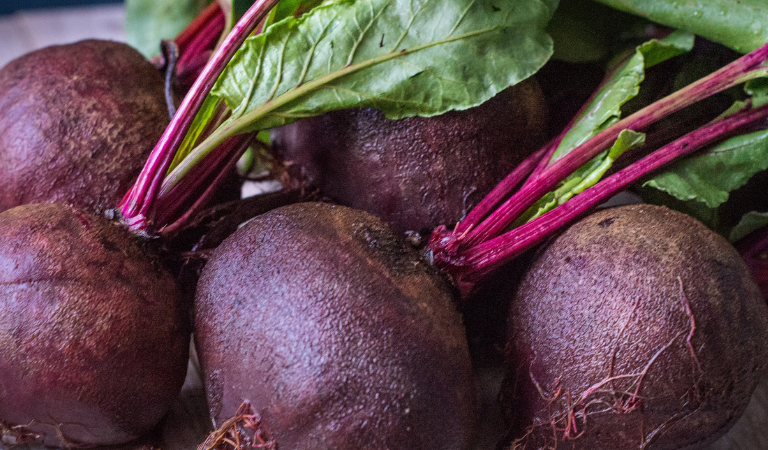
Beet greens, often overlooked in favor of the more popular beetroot, are the vibrant, nutrient-dense leaves that sprout from the top of the beet plant. Packed with an array of essential vitamins, minerals, antioxidants, and anti-inflammatory compounds, incorporating beet greens into your diet can contribute to overall health and help protect against chronic diseases.
One of the standout nutrients in beet greens is vitamin A, which plays a crucial role in maintaining healthy vision, skin, and immune function. A single cup of cooked beet greens provides approximately 220% of the recommended daily intake for this essential vitamin. Vitamin C, another vital nutrient found in abundance in beet greens, supports the growth and repair of body tissues, as well as a robust immune system. A single serving of beet greens offers around 30% of the daily recommended intake for this powerful antioxidant vitamin.
Furthermore, beet greens are an excellent source of vitamin K, providing more than 380% of the daily value per cup. This important nutrient plays a critical role in blood clotting and maintaining strong bones, as it helps with calcium absorption. In addition to these vitamins, beet greens are rich in minerals like iron, which is vital for carrying oxygen in red blood cells, and calcium, essential for maintaining healthy bones and teeth.
When it comes to antioxidants, beet greens do not disappoint. They contain high levels of compounds like betalains, which provide the vivid red and yellow hues to the beetroot itself. Betalains have been shown to possess strong antioxidant and anti-inflammatory properties, which can help protect cells from damage and reduce the risk of chronic diseases, such as heart disease and cancer.
On top of this, beet greens are abundant in anti-inflammatory compounds, such as lutein and zeaxanthin. These carotenoids, commonly found in green leafy vegetables, have been linked to a reduced risk of age-related macular degeneration and cataracts. Furthermore, the dietary fiber found in beet greens contributes to better digestion and gut health.
Incorporating beet greens into your diet is an easy way to enhance your nutrient intake and reap the benefits of their potent antioxidants and anti-inflammatory compounds. They can be prepared in a variety of ways, such as sautéing in olive oil with garlic, adding them to salads, or blending them into smoothies. By choosing not to discard these nutrient-dense leaves, you are not only contributing to a more sustainable and environmentally friendly diet but also promoting a healthier and more robust body.
In addition to incorporating these greens into your meals, you can also reap their benefits by drinking green beneficial drinks
Green Tea

Green tea, a popular beverage worldwide, has been esteemed for centuries due to its plethora of health benefits, which are backed by both scientific research and traditional wisdom. The abundance of bioactive compounds, including polyphenols, catechins, and flavonoids, contributes to green tea’s impressive therapeutic potential.
One of the hallmark advantages of green tea is its highly praised antioxidant content, especially the catechin called epigallocatechin-3-gallate (EGCG), which significantly reduces the formation of free radicals. By combatting oxidative stress, EGCG helps preserve cellular integrity and retard the aging process. Furthermore, green tea demonstrates a promising capacity to lower the risk of various cancers, such as breast, prostate, and colorectal cancer, which can be attributed to its antioxidant properties.
Green tea is also renowned for its role in weight management and metabolic improvement. It boosts the body’s fat oxidation process and enhances thermogenesis, leading to increased calorie burning. Simultaneously, it regulates blood sugar levels by improving insulin sensitivity, thus mitigating the risk of developing Type 2 diabetes.
Another remarkable benefit of green tea is its ability to promote cardiovascular health. It has been shown to reduce LDL cholesterol levels, minimize blood clot formation, and improve blood vessel function, ultimately reducing the likelihood of heart disease and stroke.
Adding to its arsenal of advantages is green tea’s contribution to oral health. The antimicrobial properties of the catechins found in green tea help inhibit the growth of bacteria and viruses, which consequently helps reduce bad breath, dental plaque, and the risk of developing cavities.
Apart from fostering physical well-being, green tea also enhances cognitive function. Its moderate caffeine content, combined with the amino acid L-theanine, works synergistically to improve brain function, alertness, and mood. Moreover, drinking green tea regularly may help protect against neurodegenerative diseases, such as Alzheimer’s and Parkinson’s, due to its potential neuroprotective effects.
The consumption of green tea offers an array of remarkable health benefits, including antioxidant prowess, cancer risk reduction, metabolic improvement, cardiovascular protection, oral health enhancement, and cognitive function support. With its rich nutritional profile and scientifically-supported medicinal properties, green tea constitutes an ideal choice for those seeking a health-boosting and refreshing beverage.
Green Juice
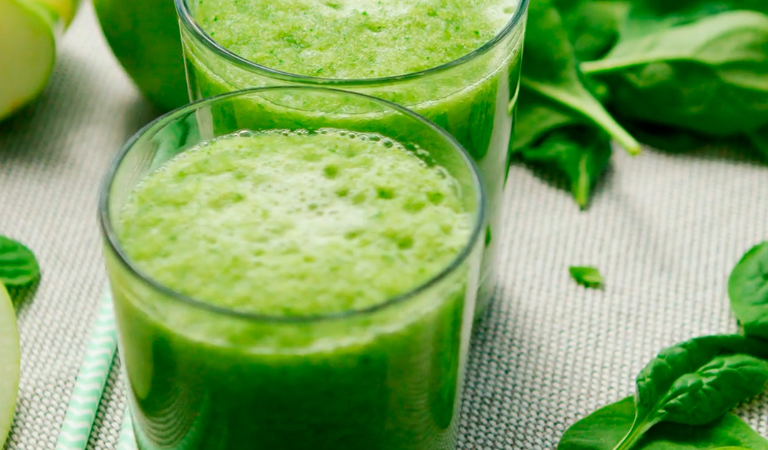
Green juice, a highly nutritious beverage, is concocted using an assortment of leafy green vegetables and other ingredients rich in nutrients. One of its most significant benefits is providing an easy-to-consume, concentrated form of essential vitamins, minerals, and antioxidants in just a single serving, contributing to overall health and well-being.
Creating green juice in the comfort of your own home is a simple process. By blending together a selection of your preferred greens, such as spinach, kale, or cucumber, you can tailor the drink to your taste buds. Furthermore, additional nutrient-dense ingredients, like ginger, lemon, or apple, not only enhance the flavor but also augment the drink’s health benefits. For an additional infusion of nutrients, consider incorporating a scoop of high-quality greens powder, which is specifically designed to boost the overall nutrient content of your green juice.
Ultimately, green juice provides a convenient and palatable method to significantly increase your daily intake of essential vitamins, minerals, and antioxidants, promoting improved health and vitality.
So why not add a few of these greens to your next meal or try out a green beneficial drink for an extra nutrient boost?
While leafy greens are a nutrient-dense food that provides numerous health benefits, some individuals may have personal preferences or dietary restrictions that prevent them from consuming greens in their whole food form. Additionally, some people may find it difficult to incorporate enough greens into their diet due to factors such as a busy lifestyle or limited access to fresh produce. In such cases, powdered greens can offer a convenient alternative that allows individuals to easily supplement their diet with key nutrients found in leafy greens.

